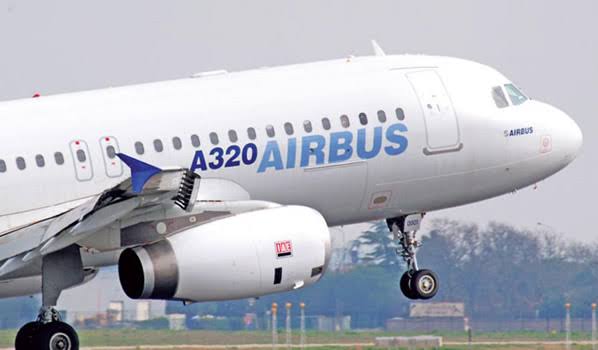Nigeria has officially been removed from the global aviation watchlist, marking a major achievement in Nigeria’s efforts to strengthen its aviation sector. This development comes after global aviation giants Airbus and Boeing upgraded Nigeria’s credit score to 75% reflecting improved compliance with international standards.
The improvement in Nigeria’s credit score and subsequent removal from the aviation watchlist followed the country’s adoption of the “Irrevocable De-registration and Export Request Authorization (IDERA)”. The adoption of the IDERA, which are the rules governing aircraft repossession by creditors and lessors, has played a central role in raising the country’s global aviation compliance score. The National Aviation Working Group (AWG) officially made the announcement kown on its website, declaring that Nigeria’s compliance score under the Cape Town Convention (CTC) had risen from 70.5% to 75.5%. This upgraded score places Nigeria in the ‘high category’ on the CTC Compliance Index.

For many years, Nigeria had struggled to comply with certain international aviation rules, which had resulted in the country being placed on the AWG’s watchlist of non-compliant nations. The watchlist signaled concerns from international financiers and aircraft lessors about the ease with which they could repossess aircraft in the event of a default. The removal from this watchlist now indicates that Nigeria has addressed these concerns, improving the overall transparency and reliability of its aviation policies.
In a letter to the Minister of Aviation and Aerospace Development Mr. Festus Keyamo, the AWG confirmed that the signing of the IDERA had completed Nigeria’s compliance process. This action was pivotal in securing Nigeria’s removal from the watchlist, as it demonstrated the country’s commitment to aligning with international norms regarding aircraft leasing and financing.
Festus Keyamo expressed his satisfaction with this achievement on his verified X account noting that the upgraded compliance score would open up new opportunities for Nigerian airlines in terms of financing and leasing aircraft. He explained that this improvement would allow Nigerian airlines to gain access to better financing options and the global aircraft leasing market, which would, in turn, translate to more frequent flights, an expansion of routes, and competitive ticket pricing. “The resulting impact will be felt in increased flight regularity, the expansion of serviced routes, and competitive ticket pricing, ultimately benefiting the Nigerian public,” Keyamo said.

The Minister further emphasized the importance of this milestone, describing it as the highest compliance score Nigeria has ever achieved in the aviation sector. He highlighted the confidence this development would instill in international financiers and leasing companies, noting that it would serve as a “major market opener” for the Nigerian aviation sector. Keyamo remarked that this progress would enable Nigerian airline operators to confidently enter the global arena of aircraft financing and leasing, thereby expanding their operational capabilities.
Reflecting on Nigeria’s past aviation challenges, Keyamo acknowledged that the country had previously been in a difficult position. At one point, Nigeria was rated at 49.5, a non-compliant score that placed the country on a blacklist. However, following the signing of the Cape Town Convention Practice Direction, the country’s score increased to 70.5, bringing it into compliance but still leaving it under scrutiny on the AWG watchlist. The recent upgrade to 75.5 signifies that Nigeria is now fully compliant and no longer subject to such scrutiny.
Keyamo explained that this achievement would not have been possible without strong political will and leadership from President Tinubu. He credited the President’s direction and focus in setting the right policies to drive Nigeria’s aviation sector forward. According to Keyamo, previous administrations had neglected the IDERA process, mistakenly believing it was not necessary. He stressed that this lack of attention had hampered Nigeria’s ability to fully participate in the global aviation market. However, with this new policy shift, Nigeria can now fully engage with international partners on equal footing. “I think it is the political will, the encouragement by Mr. President, the focus we have. Mr. President gave us the right direction on what to do and how to go and set up the policies there. This request, I can tell you, has been on the table in Nigeria, but nobody attended to it,” Keyamo explained.
He went on to explain that the earlier mindset in Nigeria was one of resignation, where the country believed it could not compete with larger nations in managing its aviation sector. This had led to a policy shift where Nigeria sought external assistance from bigger countries to help take over parts of its aviation system. However, with the recent changes, Nigeria is now taking control of its own aviation ecosystem, adopting policies similar to those that have been successful in other countries.
It was only last month that Nigeria made significant progress by moving from a score of 49.5 to 70.5 after signing the Cape Town Convention Practice Direction. This improvement demonstrated that the country was making strides in meeting international aviation standards. Now, with the implementation of the IDERA, Nigeria has fully aligned its administrative rules with the global aviation framework. The Minister revealed that he had instructed the Nigeria Civil Aviation Authority (NCAA) to immediately adjust its own rules to match the IDERA and Cape Town Convention requirements. This further alignment is expected to boost the confidence of financiers and aircraft lessors even more, thereby increasing Nigeria’s potential for future growth in the aviation sector.
Keyamo remains optimistic that the country’s aviation compliance score will continue to rise in the coming months, predicting that further improvements could be on the horizon as the country continues to strengthen its aviation policies. With these positive developments, Nigeria’s aviation sector is poised for a brighter future, with the potential to attract more investment, enhance airline operations, and improve the overall experience for travelers.































